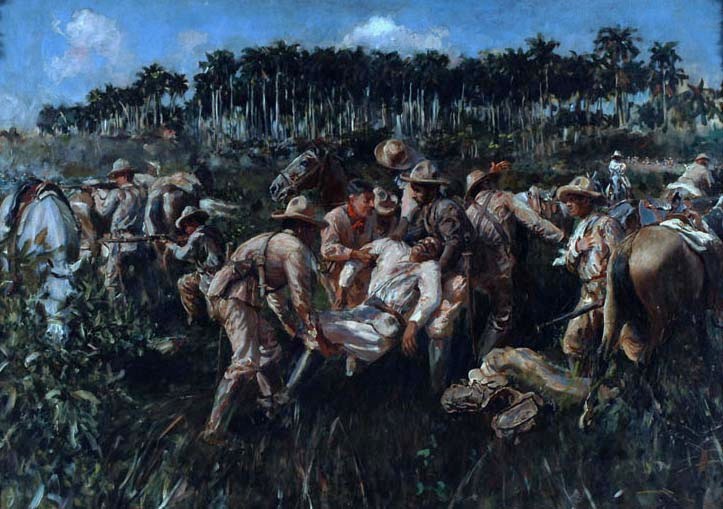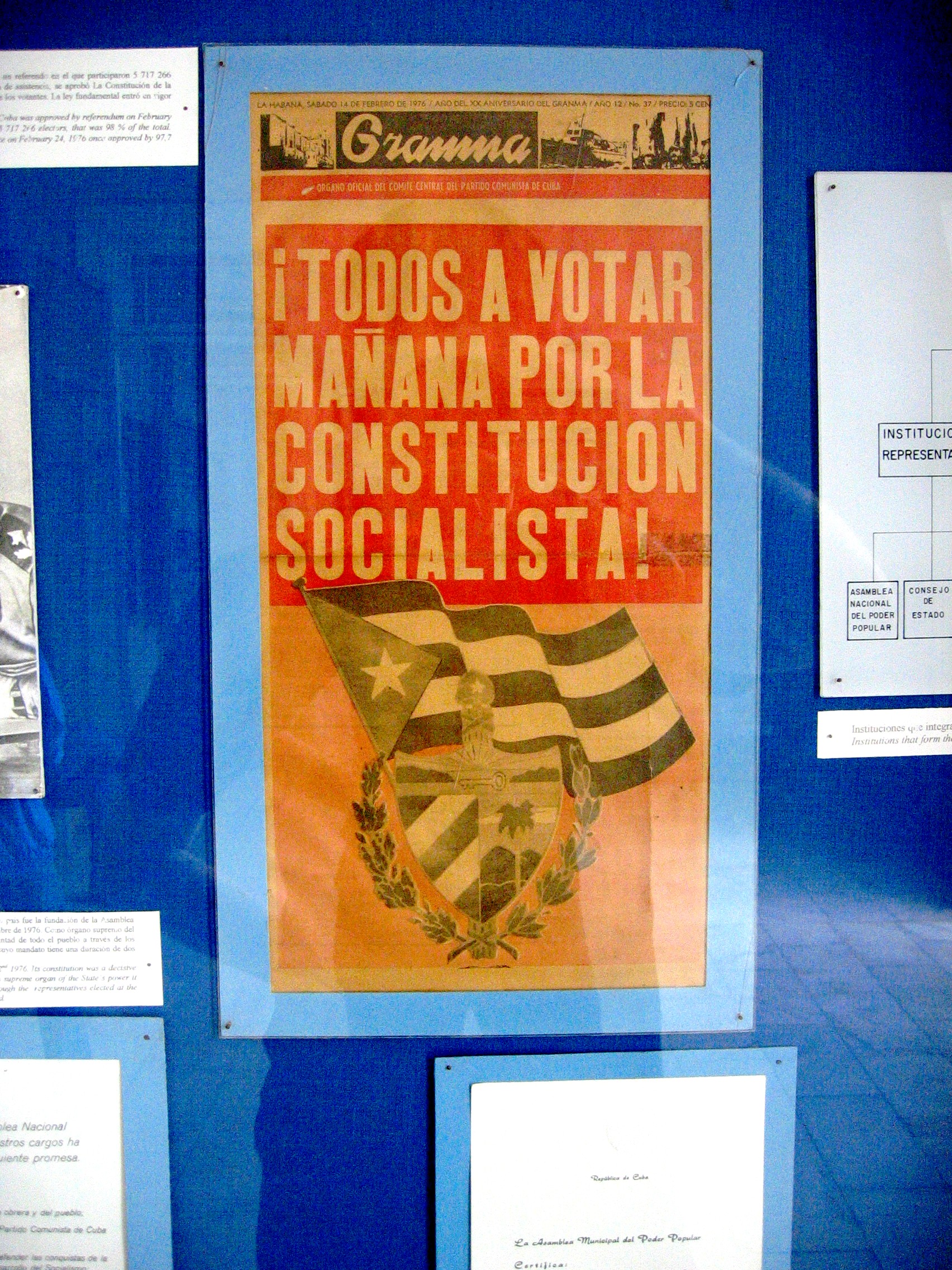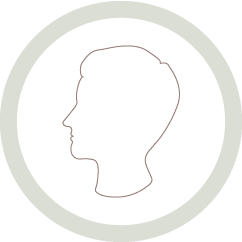|
Cuba
Cuba, officially the Republic of Cuba, is an island country, comprising the island of Cuba (largest island), Isla de la Juventud, and List of islands of Cuba, 4,195 islands, islets and cays surrounding the main island. It is located where the northern Caribbean Sea, Gulf of Mexico, and Atlantic Ocean meet. Cuba is located east of the Yucatán Peninsula (Mexico), south of both Florida and the Bahamas, west of Hispaniola (Haiti/Dominican Republic), and north of Jamaica and the Cayman Islands. Havana is the largest city and capital. Cuba is the List of countries and dependencies by population, third-most populous country in the Caribbean after Haiti and the Dominican Republic, with about 10 million inhabitants. It is the largest country in the Caribbean by area. The territory that is now Cuba was inhabited as early as the 4th millennium BC, with the Guanahatabey and Taino, Taíno peoples inhabiting the area at the time of Spanish colonization of the Americas, Spanish colonization ... [...More Info...] [...Related Items...] OR: [Wikipedia] [Google] [Baidu] |
Cuban Revolution
The Cuban Revolution () was the military and political movement that overthrew the dictatorship of Fulgencio Batista, who had ruled Cuba from 1952 to 1959. The revolution began after the 1952 Cuban coup d'état, in which Batista overthrew the emerging Cuban democracy and consolidated power. Among those who opposed the coup was Fidel Castro, then a young lawyer, who initially tried to challenge the takeover through legal means in the Cuban courts. When these efforts failed, Fidel Castro and his brother Raúl Castro, Raúl led an armed Attack on the Moncada Barracks, assault on the Moncada Barracks, a Cuban military post, on 26 July 1953. Following the attack's failure, Fidel Castro and his co-conspirators were arrested and formed the 26th of July Movement (M-26-7) in detention. At his trial, Fidel Castro launched into a History Will Absolve Me, two-hour speech that won him national fame as he laid out his grievances against the Batista dictatorship. In an attempt to win pub ... [...More Info...] [...Related Items...] OR: [Wikipedia] [Google] [Baidu] |
Havana
Havana (; ) is the capital and largest city of Cuba. The heart of La Habana Province, Havana is the country's main port and commercial center.Cuba ''The World Factbook''. Central Intelligence Agency. It is the most populous city, the largest by area, and the List of metropolitan areas in the West Indies, second largest metropolitan area in the Caribbean region. The population in 2012 was 2,106,146 inhabitants, and its area is for the capital city side and 8,475.57 km2 for the metropolitan zone. Its official population was 1,814,207 inhabitants in 2023. Havana was founded by the Spanish Empire, Spanish in the 16th century. It served as a springboard for the Spanish colonization of the Americas, Spanish conquest of ... [...More Info...] [...Related Items...] OR: [Wikipedia] [Google] [Baidu] |
Afro-Cubans
Afro-Cubans () or Black Cubans are Cubans of full or partial sub-Saharan African ancestry. The term ''Afro-Cuban'' can also refer to historical or cultural elements in Cuba associated with this community, and the combining of native African and other cultural elements found in Cuban society, such as race, religion, music, language, the arts and class culture. Demographics According to the 2002 national census that surveyed 11.2 million Cubans, 1 million or 11% of Cubans identified as Afro-Cuban or Black. Some 3 million identified as "mulatto" or "mestizo", meaning of mixed race, primarily a combination of African and European. Thus more than 40% of the population on the island affirm some African ancestry. The Cuban Revolution brought to power Fidel Castro, who promised a communist society without racism. His government promised equal opportunities for education, health care and work. There has been much scholarly discussion about the demographic composition of the island ... [...More Info...] [...Related Items...] OR: [Wikipedia] [Google] [Baidu] |
Cubans
Cubans () are the citizens and nationals of Cuba. The Cuban people have varied origins with the most spoken language being Spanish. The larger Cuban diaspora includes individuals that trace ancestry to Cuba and self-identify as Cuban but are not necessarily Cuban by citizenship. The United States has the largest Cuban population in the world after Cuba. The modern nation of Cuba, located in the Caribbean, emerged as an independent country following the Spanish-American War of 1898, which led to the end of Spanish colonial rule. The subsequent period of American influence, culminating in the formal independence of Cuba in 1902, initiated a complex process of national identity formation. This identity is characterized by a blend of Indigenous Taíno, African, and Spanish cultural elements, reflecting a unique multicultural heritage. The Cuban Revolution of 1959, which brought Fidel Castro to power, marked a significant turning point as it transformed the political landscap ... [...More Info...] [...Related Items...] OR: [Wikipedia] [Google] [Baidu] |
Republic Of Cuba (1902–1959)
The Republic of Cuba, covering the historical period in Cuban history between 1902 and 1959, was an island country comprised the island of Cuba, as well as Isla de la Juventud (after 1925) and several minor archipelagos. The period began in 1902 following the end of its first U.S. military occupation years after Cuba declared independence in 1898 from the Spanish Empire. This era included various changing governments and U.S. military occupations, and ended with the outbreak of the Cuban Revolution in 1959. During this period, the United States exerted great influence on Cuban politics, notably through the Platt Amendment. The governments of Cuba between independence from Spain and the Revolution have been regarded as client state of the United States. From 1902 to 1934, Cuban and U.S. law included the Platt Amendment, which guaranteed the United States right to intervene in Cuba, making it a U.S. protectorate, and placed restrictions on Cuban foreign relations. In 1934, Cuba ... [...More Info...] [...Related Items...] OR: [Wikipedia] [Google] [Baidu] |
Cuban War Of Independence
The Cuban War of Independence (), also known in Cuba as the Necessary War (), fought from 1895 to 1898, was the last of three liberation wars that Cuba fought against Spain, the other two being the Ten Years' War (1868–1878) and the Little War (1879–1880). During the war, Spain sent 220,285 soldiers to Cuba—according to the Library of Congress, the largest army to cross the Atlantic until World War II. The final three months of the conflict escalated to become the Spanish–American War, with United States forces being deployed in Cuba, Puerto Rico, and the Philippines against Spain. Historians disagree as to the extent that United States officials were motivated to intervene for humanitarian reasons but agree that yellow journalism exaggerated atrocities attributed to Spanish forces against Cuban civilians. Background During the years 1879–1888 of the so-called "Rewarding Truce", lasting for 17 years from the end of the Ten Years' War in 1878, there were fundament ... [...More Info...] [...Related Items...] OR: [Wikipedia] [Google] [Baidu] |
Constitution Of Cuba
Even before attaining its independence from Spain, Cuba had several constitutions either proposed or adopted by insurgents as governing documents for territory they controlled during their war against Spain. Cuba has had several constitutions since winning its independence. The first constitution since the Cuban Revolution was drafted in 1976 and has since been amended. In 2018, Cuba became engaged in a major revision of its constitution. The current constitution was then enacted in 2019. Early models Events in early 19th-century Spain prompted a general concern with constitutions throughout Spain's overseas possessions. In 1808, both Ferdinand VII of Spain and his predecessor and father, Charles IV of Spain, resigned their claims to the throne in favor of Napoleon Bonaparte, who in turn passed the crown to his brother Joseph Bonaparte. In the ensuing Peninsular War, the Spanish waged a war of independence against the French Empire. On 19 March 1812, the Cortes Generales in ref ... [...More Info...] [...Related Items...] OR: [Wikipedia] [Google] [Baidu] |
Miguel Díaz-Canel
Miguel Díaz-Canel Bermúdez (; born 20 April 1960) is a Cuban politician and engineer. He has served as the 8th First Secretary of the Communist Party of Cuba, first secretary of the Communist Party of Cuba since 2021 and as the 17th president of Cuba since 2019. In his capacity as First Secretary, he is the most powerful person in the Cuban government. Díaz-Canel succeeded the brothers Fidel Castro, Fidel and Raúl Castro, becoming Cuba's first non-Castro leader since Cuban Revolution, 1958 and its first non-Castro head of state since 1976. He has been a member of the Politburo of the Communist Party of Cuba, Politburo since 2003. He served as Minister of Higher Education from 2009 until 2012, when he was promoted to Vice President of the Council of Ministers of Cuba, Vice President of the Council of Ministers. A year later, in 2013, he was elected as Vice President of Cuba, First Vice President of the Council of State (Cuba), Council of State. In 2018, he succeeded Raúl Castro ... [...More Info...] [...Related Items...] OR: [Wikipedia] [Google] [Baidu] |
Ten Years' War
The Ten Years' War (; 1868–1878), also known as the Great War () and the War of '68, was part of Cuba's fight for independence from Spain. The uprising was led by Cuban-born planters and other wealthy natives. On 10 October 1868, sugar mill owner Carlos Manuel de Céspedes and his followers proclaimed independence, beginning the conflict. This was the first of three liberation wars that Cuba fought against Spain, the other two being the Little War (Cuba), Little War (1879–1880) and the Cuban War of Independence (1895–1898). The final three months of the last conflict escalated with United States involvement, leading to the Spanish–American War. Background Slavery Cuban bourgeoisie demanded fundamental social and economic reforms from the Monarchy of Spain, Crown. Lax enforcement of the Slavery in colonial Spanish America, slave trade ban had resulted in a dramatic increase in imports of African diaspora, Africans, estimated at 90,000 slaves from 1856 to 1860. This occ ... [...More Info...] [...Related Items...] OR: [Wikipedia] [Google] [Baidu] |
White Cubans
White Cubans () are Cubans of total or predominantly European or West Asian ancestry, these stand out for having Light skin, light or olive skin and self-identify as white people, white. In a more official sense, the National Office of Statistics and Information, which collects demographic data on Cubans, uses the term "white". The 2012 Cuba census, 2012 Cuban census reported that White Cubans are currently the largest group in Cuba representing 64.1% of the population. History In 1511, Diego Velázquez de Cuéllar set out with three ships and an army of 300 men from Hispaniola to form the first Spanish settlement in Cuba, with orders from Spain to conquer the island. The settlement was at Baracoa, but the new settlers were to be greeted with stiff resistance from the local Taíno population. The Taínos were initially organized by cacique (''chieftain'') Hatuey, who had himself relocated from Hispaniola to escape the brutalities of Spanish rule on that island. After a prolonged ... [...More Info...] [...Related Items...] OR: [Wikipedia] [Google] [Baidu] |
Cuban Spanish
Cuban Spanish is the variety of the Spanish language as it is spoken in Cuba. As a Caribbean variety of Spanish, Cuban Spanish shares a number of features with nearby varieties, including coda weakening and neutralization, non-inversion of Wh-questions, and a lower rate of dropping of subject pronouns compared to other Spanish varieties. As a variety spoken in Latin America, it has seseo and lacks the pronoun. Origins Cuban Spanish is most similar to, and originates largely from, the Spanish that is spoken in the Canary Islands and Andalusia. Cuba owes much of its speech patterns to the heavy Canarian migrations of the 19th and early 20th centuries. The accent of La Palma is the closest of the Canary Island accents to the Cuban accent. Many Cubans and returning Canarians settled in the Canary Islands after the revolution of 1959. Migration of other Spanish settlers (Asturians, Catalans, Castilians), and especially Galicians also occurred, but left less influence on ... [...More Info...] [...Related Items...] OR: [Wikipedia] [Google] [Baidu] |
First Secretary Of The Communist Party Of Cuba
The First Secretary of the Central Committee of the Communist Party of Cuba is the Supreme leader, top leader of Cuba. The First Secretary is the highest office within the Communist Party of Cuba as well as ranking first in the Politburo of the Communist Party of Cuba, Politburo, the highest decision-making body in Cuba, which makes the office holder the most powerful person in the Cuban government. In communist states the General Secretary of the Communist Party, First or General Secretary of the Communist Party is typically the ''de facto'' leader of the country and a more powerful position than state offices such as President of Cuba, President (head of state) or Prime Minister of Cuba, Prime Minister (head of government), when those positions are held by different individuals. The officeholder of the post of first secretary presides over the work of the Central Committee of the Communist Party of Cuba, Central Committee of the Communist Party of Cuba (PCC), which is designated ... [...More Info...] [...Related Items...] OR: [Wikipedia] [Google] [Baidu] |







